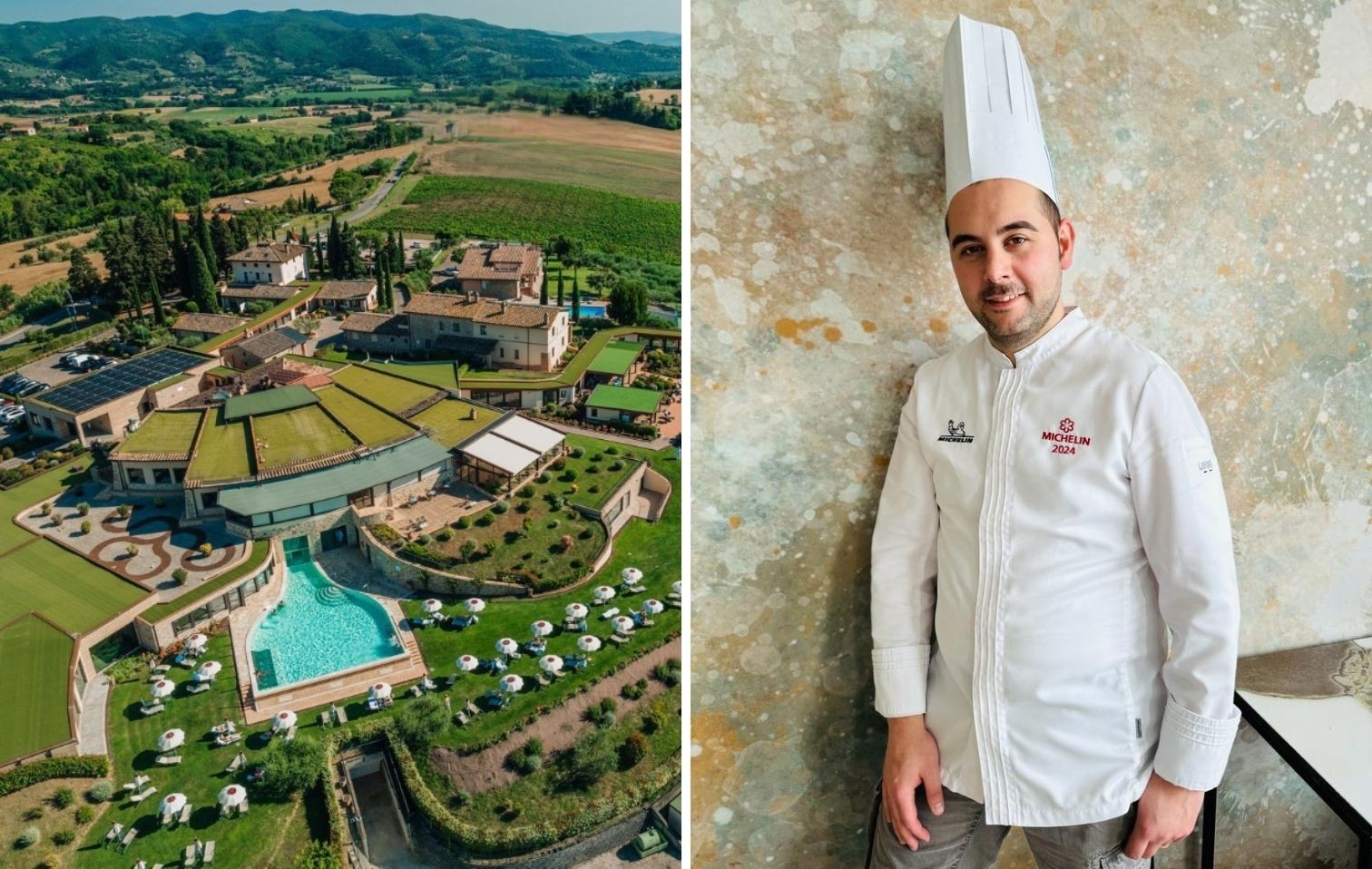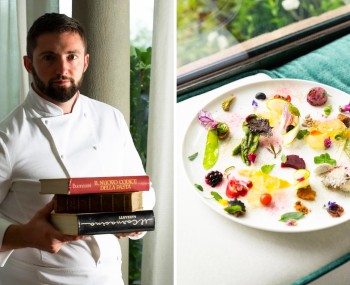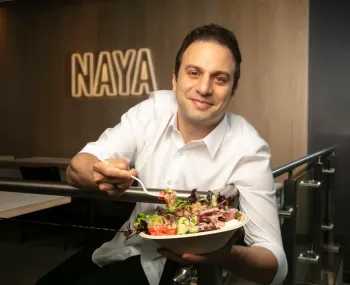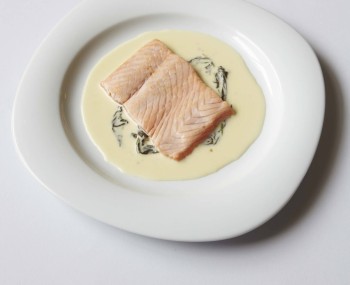“I love bold flavors, not too artifacty and covered with excess ingredients; I love Italian regional customs.” But Andrea Impero's cooking is also a game of balance and lightness. The chef continues to impress with gourmet starred Elementi dishes at one of Umbria's most charming resorts.
Photo by Andrea Blasetti
Umbria, the green heart of Italy, is a region of a beauty yet to be fully explored. Similarly, gastronomically, beyond the absolute quality of its products, starting with an oil of rare elegance in its different territorial expressions, it has remained somewhat underwhelming over the years. However, the wind is definitely changing, with many new developments and gourmet places being consolidated.
Borgobrufa: the resort and the cuisine of chef Andrea Impero
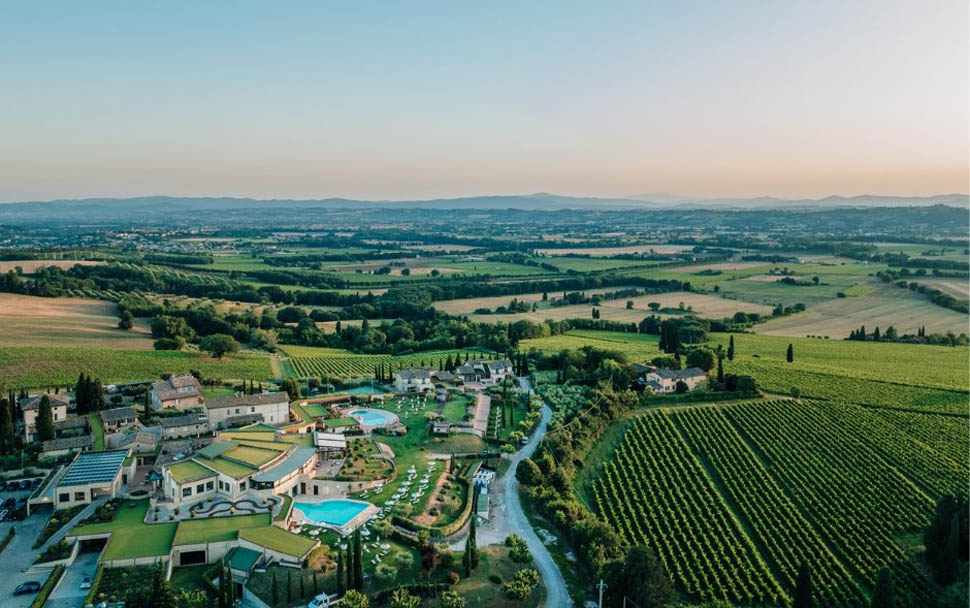
A resort as refined as Borgobrufa in Torgiano deserves a space of its own: between these lines we will deal with its fine dining restaurant Elementi, but it is worth pointing out that it is a five-star 'adults only' resort immersed in the green countryside, amid olive groves and vineyards, with 49 rooms including rooms and suites distributed between the main building and various cottages connected internally. There is also a sumptuous spa here , measuring 3,000 square meters, the largest in Umbria.
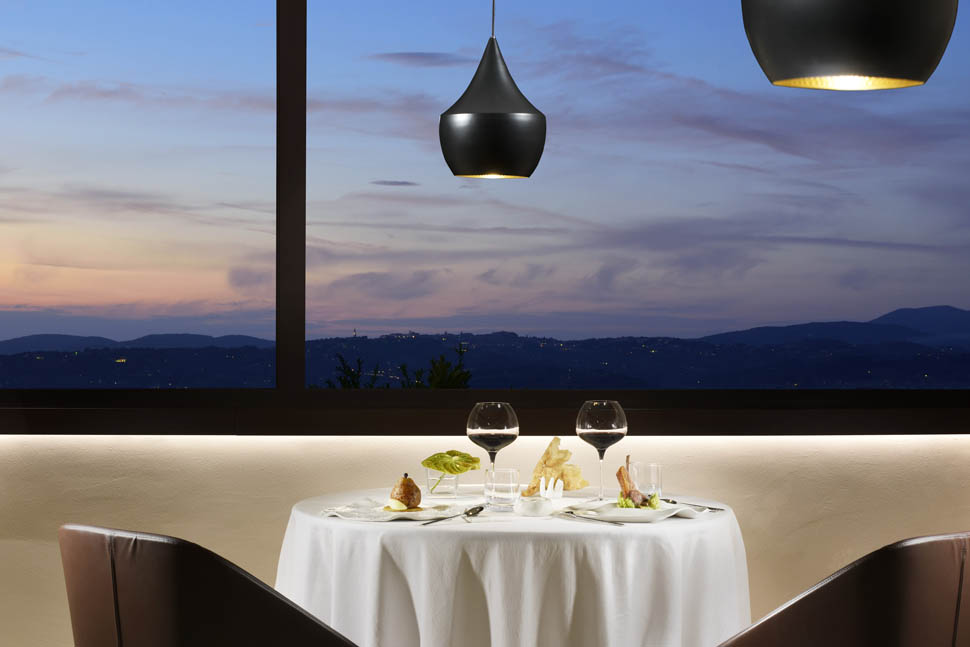
In addition to Elementi there is another restaurant, Quattro Sensi, with cuisine inspired by Umbrian tradition: Andrea Impero is in charge of both, as well as everything food in the resort, starting with breakfasts. Born in 1991 in the frusinate region of Italy, Borgobrufa's executive chef has moved between Italy and abroad with several notable stops. He had his first important experience as soon as he came of age at Alfonso Caputo 's Taverna del Capitano. He was then in Rome at Vivavoce by Don Alfonso, inside the Gran Melià hotel.
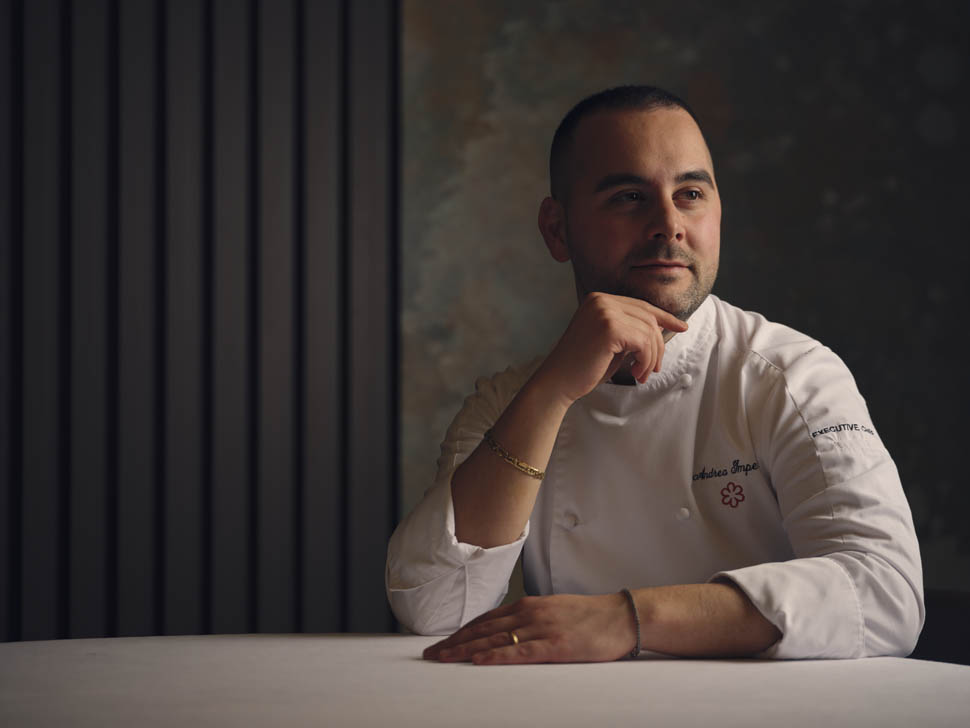
We find him as chef at George I in Vladivostok, then in London at Antonio Mellino's Quattro Passi . Finally, before returning to Italy at Borgobrufa in 2019, he was in Moscow at Maritozzo, where he was in charge of several outlets . When asked which of all was his most significant period in terms of training, he answers without hesitation, "The four years with Alfonso Caputo. To enter that world, two Michelin stars, at the age of 18 was so much for me. Being able to stay there that long was a record for me: his brigades lasted one or two seasons at most. The work was hard, the context very complex, and when you work a lot in a family it is different than in a structured company: there are no hours, you have to have a not inconsiderable flexibility, it was not easy. But Alfonso was and still is an important person. He is the one who gave me the opportunity to shoot and have other experiences and he was the first one to cheer for the star that came here in 2023."
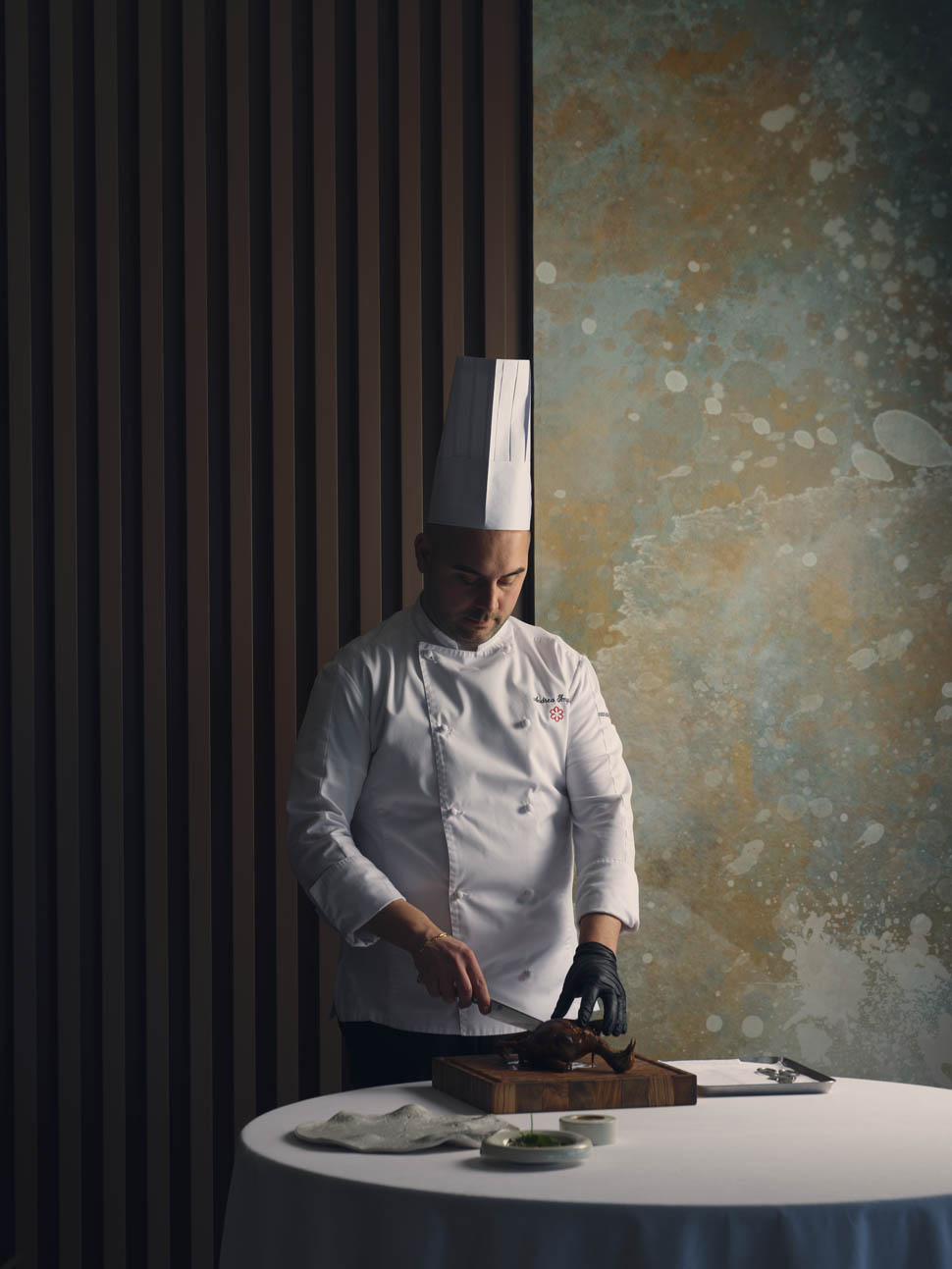
Elementi Fine Dining
At Elementi you are definitely well off, thanks certainly to Andrea Impero but also to the team that the chef has organized between the dining room and the kitchen: the maître is Domenico Scotto, flanked by a promising young woman like Mariantonella Di Renzo. Then there are the two sous chefs in the kitchen, Daniele Binario , who has been next to Impero for six years, “a fundamental person for the development of ideas and research, as well as Nicola Marzano, who has also grown so much. And then there is my wife, Martina Pallante, who used to be restaurant manager and now continues to follow me around helping me line up ideas."
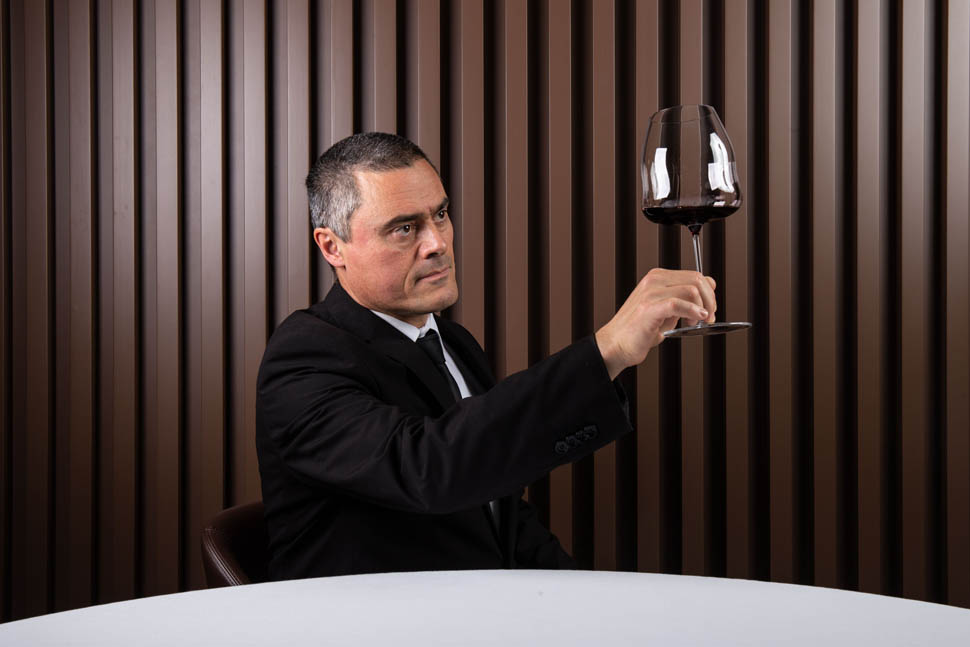
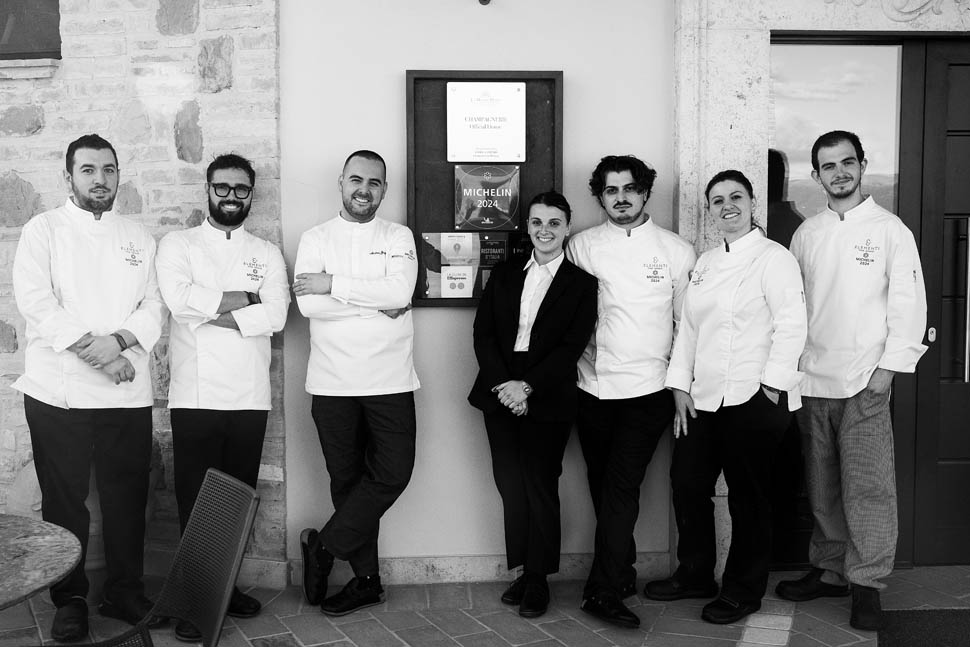
Impero is the chef who by going decidedly against the tide has promoted deseasonalization: "It fascinates me so much: at this time we are fortunately starting to use fresh produce again, but my vision is a next step, it is an even more mature and conscious awareness that the product in the fullness of its freshness can be carried into a season that is not there. The industry unfortunately allows us to buy everything year round, zucchini in January, eggplant in December, people no longer realize what that really means; so mine is a wanting to bring that product in the fullness of its maturity to the opposite season, through the preservation methods we have available. There are those who understand this and empathize with my thinking, others who think I am serving a tomato bought in February... ” This is why the room becomes even more strategic for proper communication with the guest.
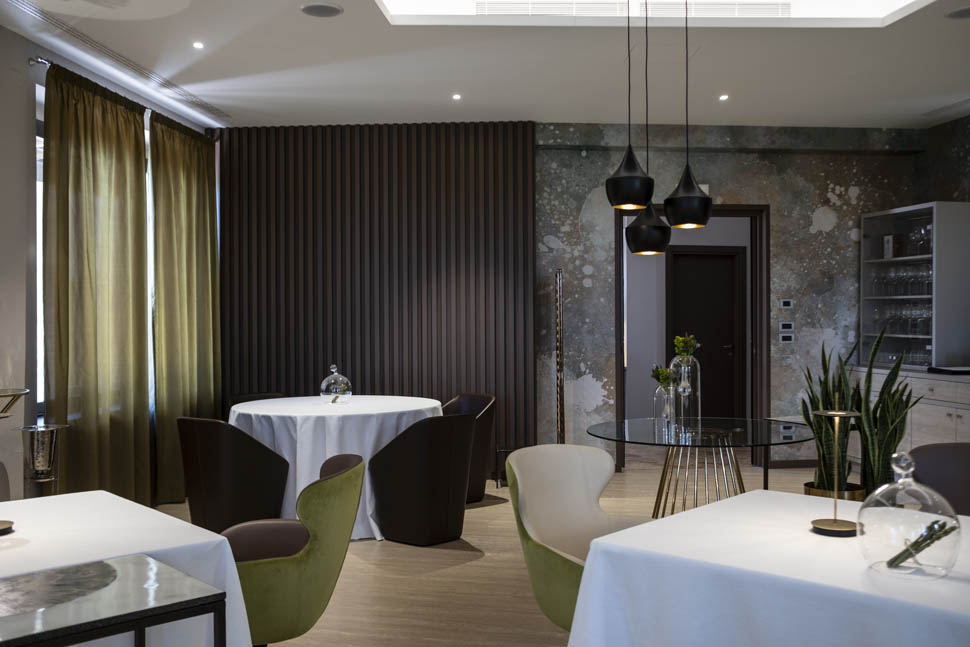
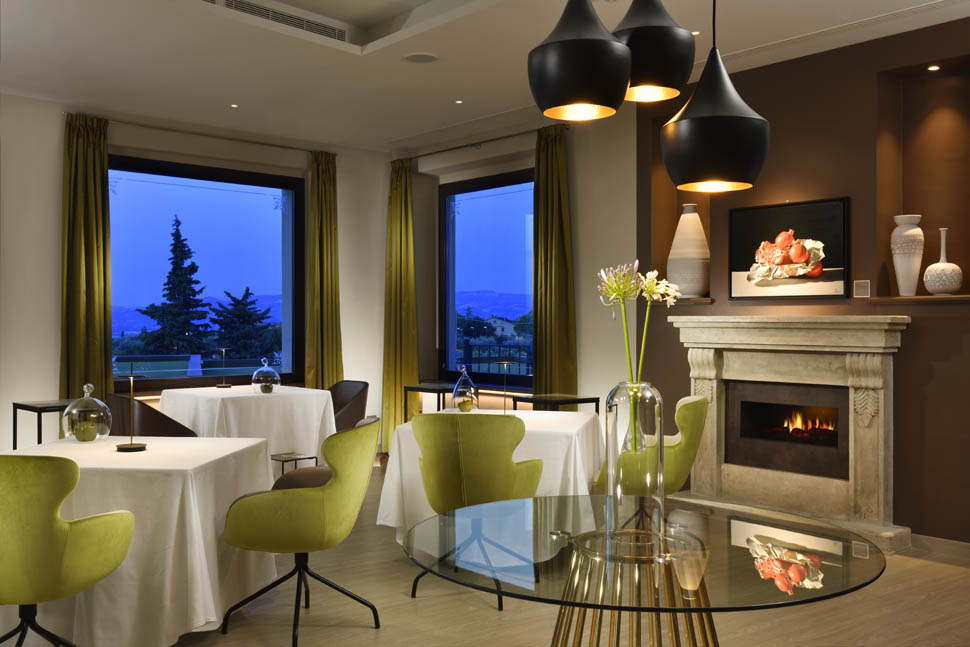
“The work needs to be made even more precise: we need to tell how we arrived at the dish, what products we used and how they were chosen.” Not only that, room service has more and more space in the new menus, set to change every two or three months with dishes whose preparation ends right at the table. If deseasonalization still marks Impero's path, both the “Visione” menu (130 euros) with its own presentation of Umbria and Central Italy and “Ispirazione” (140 euros), the more creative of the two, move toward new gustatory horizons.
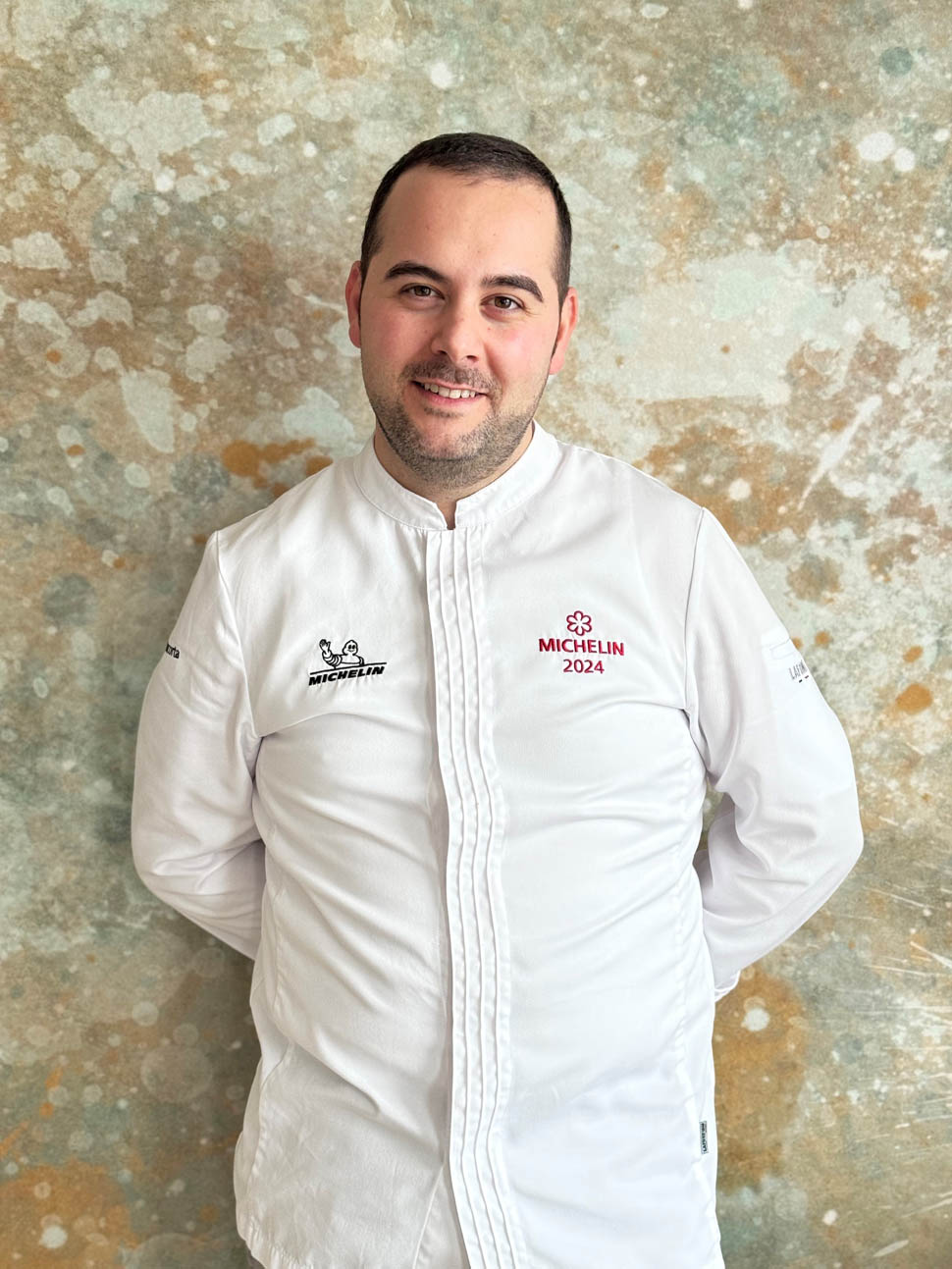
In particular, the second is the result of the inspiration Impero took from reading Italo Calvino: it is lightness in the broadest sense that characterizes his philosophy, toward a thought that is freer from schemes and rules, free to explore without conditioning. It goes without saying that lightness is also linked to his cooking style, to his substance: “I consider myself a simple cook, in the sense that I love decisive tastes, not too artificial and covered with excess ingredients, I love regional Italian cuisines. And cooking is my greatest passion, my hobby, my sport."
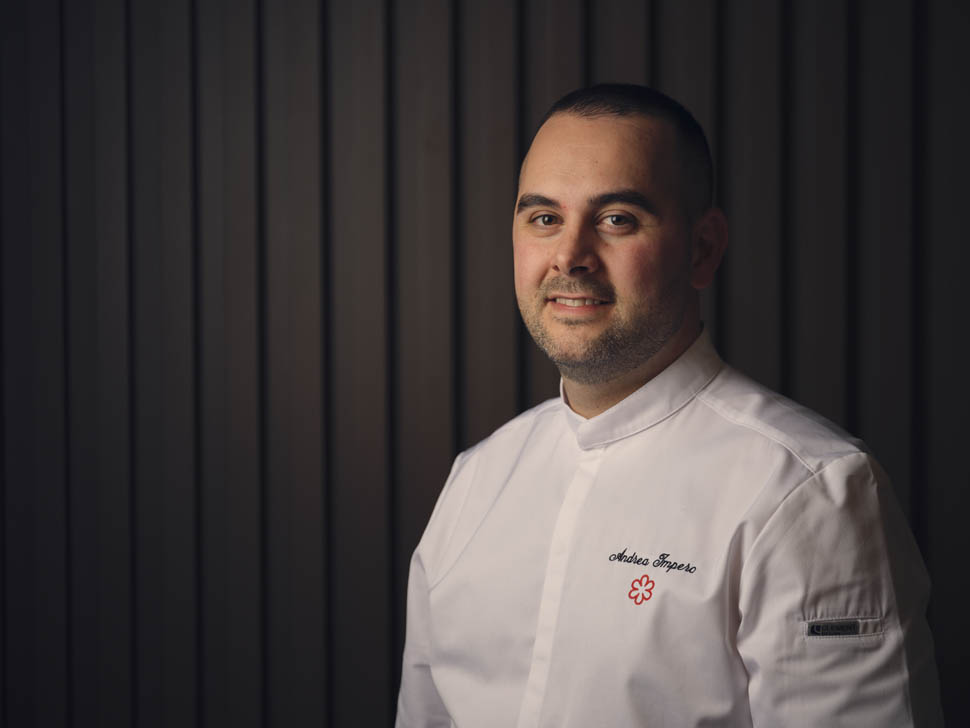
The dishes
There is good food and a lot of fun to be had with Andrea Impero's cooking. Ours was a memorable lunch, which began with bread, (a large) salami and farro, before a series of delicious little welcome samples. Breath of Autumn is an elegant dish, bringing back the chef's quest to transcend the season. Fall is distant, but its flavors come in full force with Darcy Gordon's varieties of pumpkins in Valnerina: a soufflé with pumpkin puree and fontina cheese, accompanied by a crispy wafer of chickpea and chestnut flours; it is stuffed with preserved pumpkin, pumpkin seed praline, and a grating of fermented black chestnut.
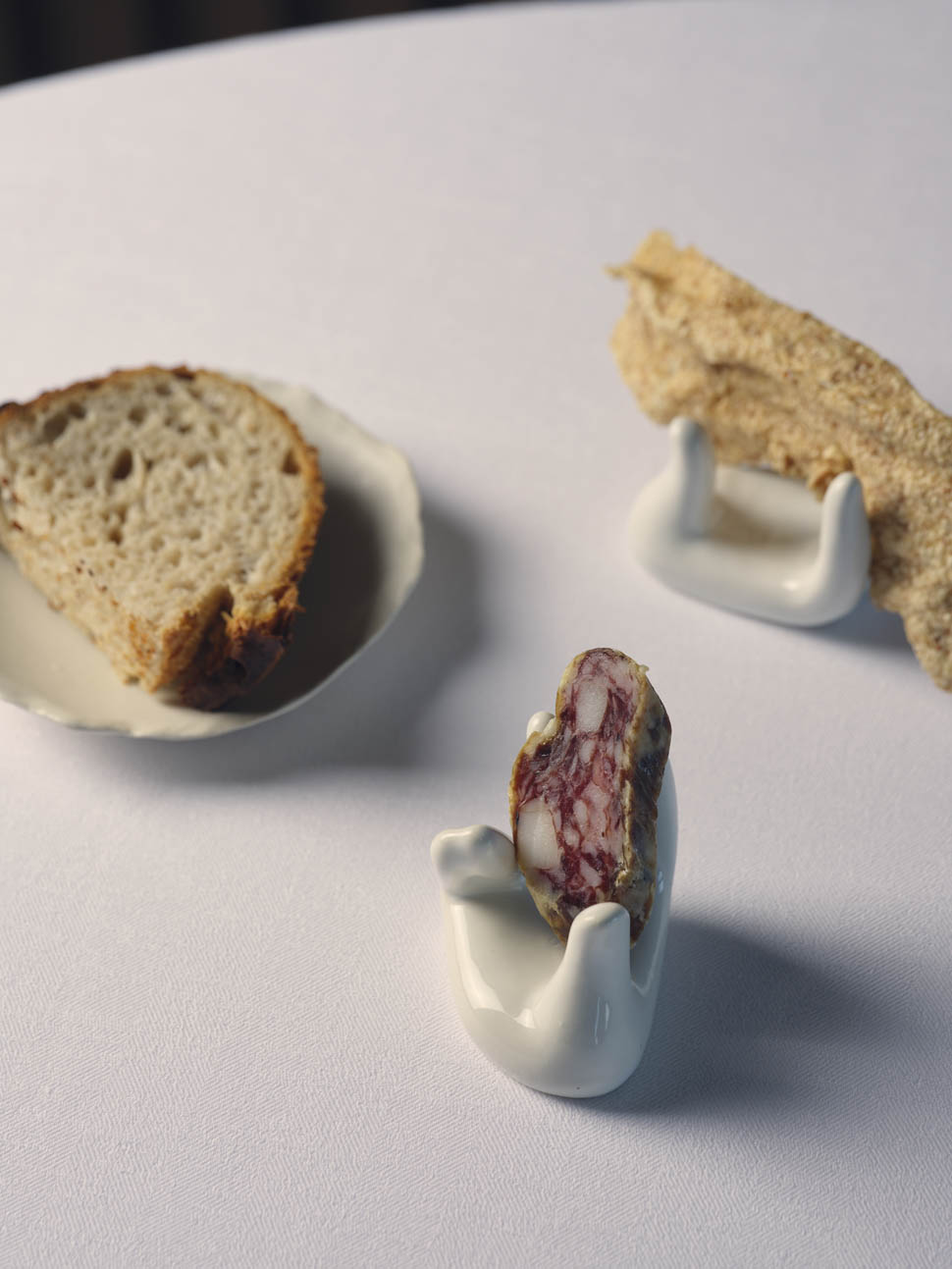
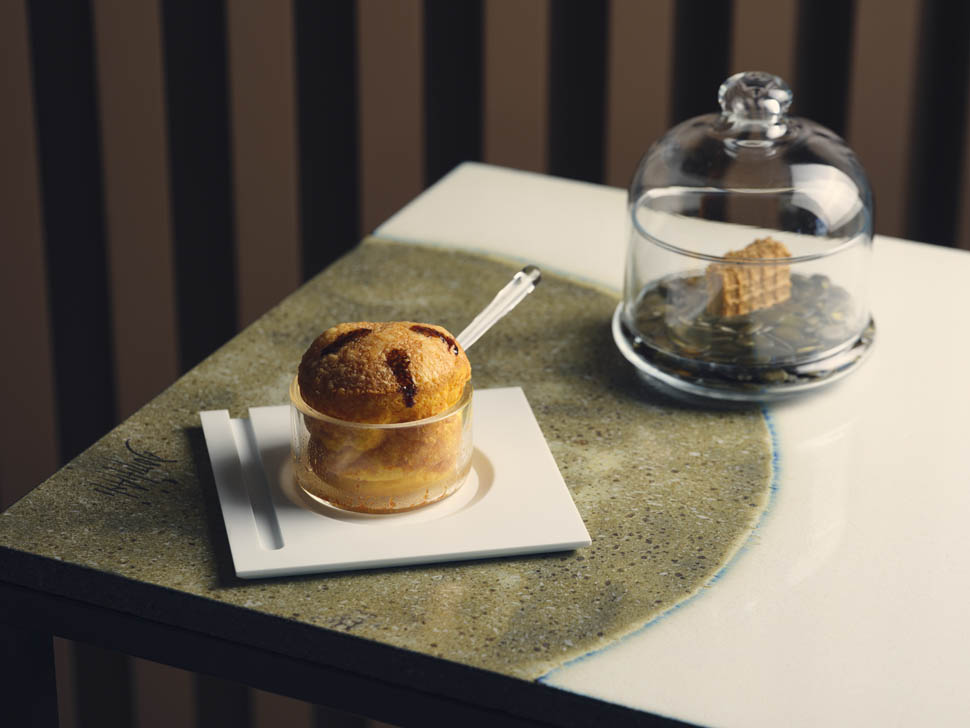
Cogliere (forest harvests) is a very fresh Misticanza from the woods to which are added preserved elements such as mountain artichokes, sea fennel and wild garlic. Crucial to its beautiful personality is a vinegar of fig leaves, lemon and Douglas fir, with Maurino extra virgin olive oil and the salt of fermented black lemons. Accompanying it is a mini ciabatta with fermented myrtle and a Faun's kombucha.
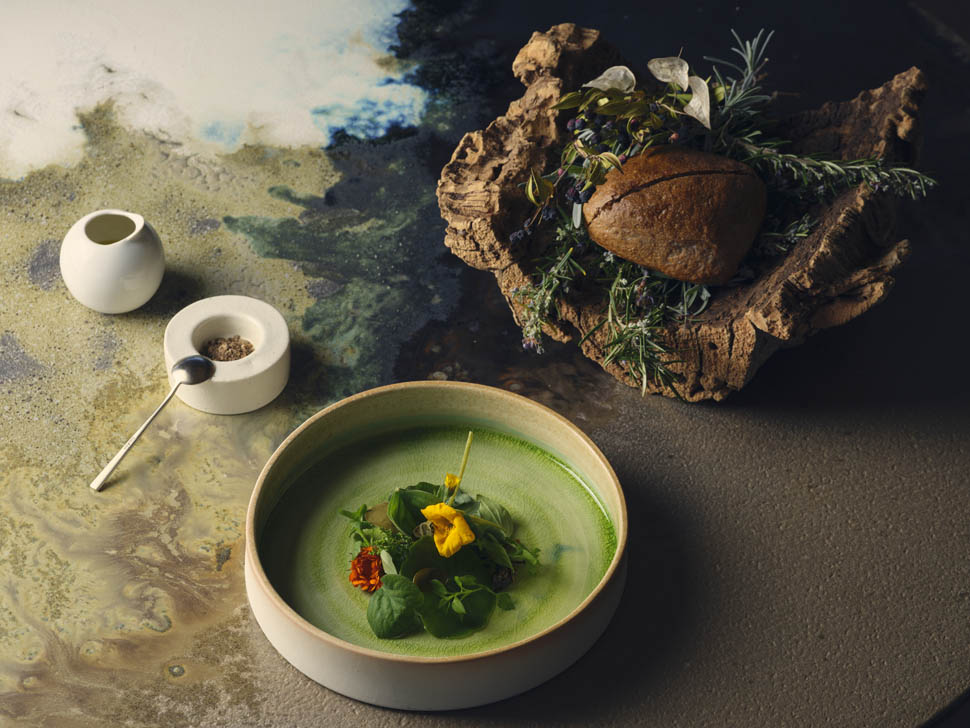
Tisana e benessere is a two-serving dish that starts with an invigorating broth 'tisana' made from different cuts of fatty ox with mushrooms, garlic and hay. This is followed by a succulent cut of freshly seared lackey or fracosta. Flavor comes from a carne salada, marinated in red wine with spices and aged for two months. In a separate bowl, boiled muscle, tossed in a salad with green bagnetto, carrots and turned potatoes.
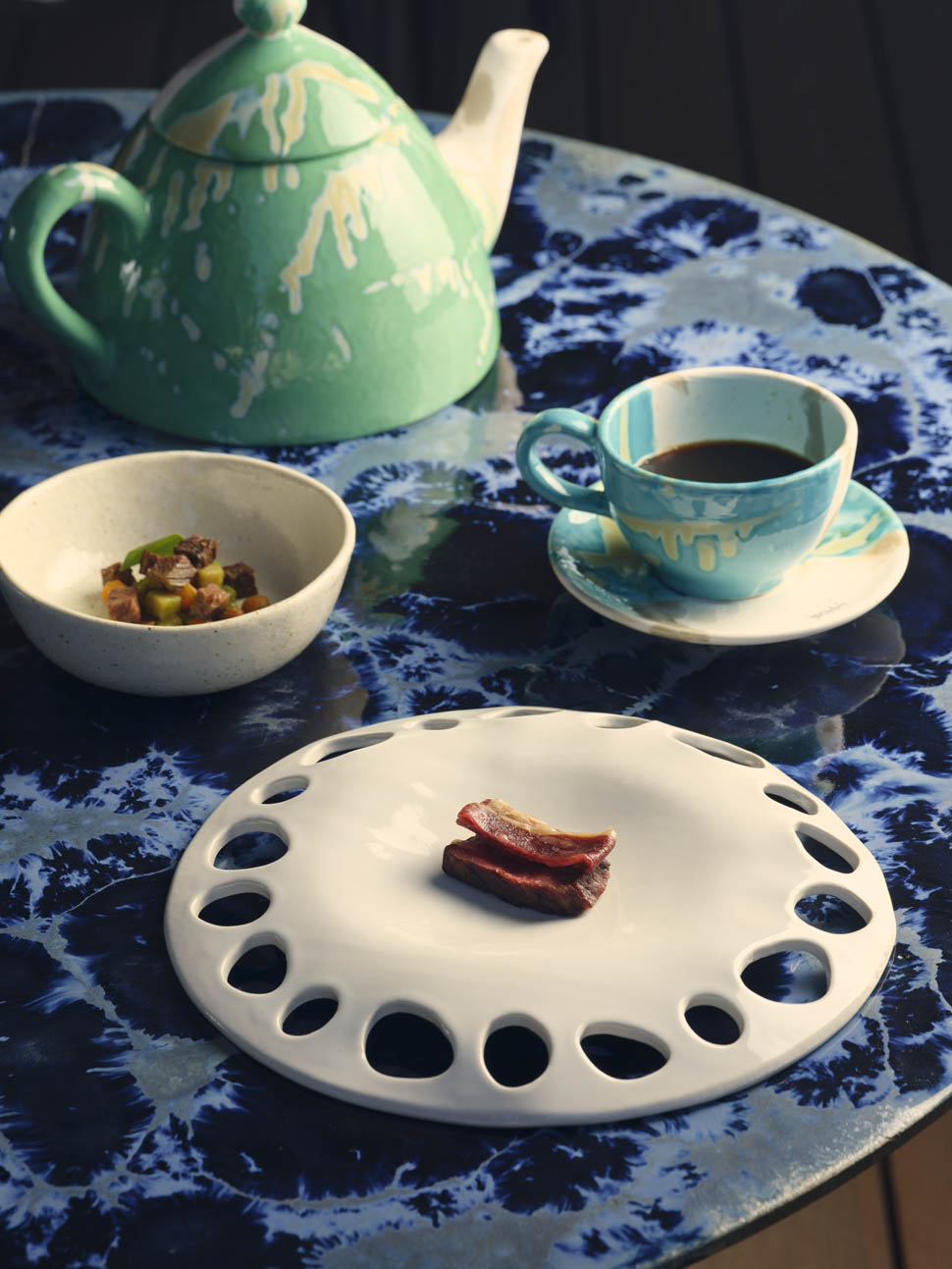
Parthenope represents 'pasta, potatoes and mussels,' with pasta that Impero serves at room temperature, turning it into a pairing for two sauces, a parmentier of potato and leek with Champagne and sour cream and one of mussels blended with their water and Corbarino tomatoes preserved in seawater, with potatoes fried in guanciale fat and crumbled guanciale crumbles to make it all a real sin of gluttony. Another simple and old-fashioned dish, Savoy cabbage and potatoes, very light at the expense of expectations, is at the base of above the bench. These are Parisian-style gnocchi made with buckwheat and preserved kale. After cooking, they are topped with an air of goat's milk and goat's cheese with six months' maturation; a puree of preserved savoy cabbage and pickled cabbage leaves accompany it.
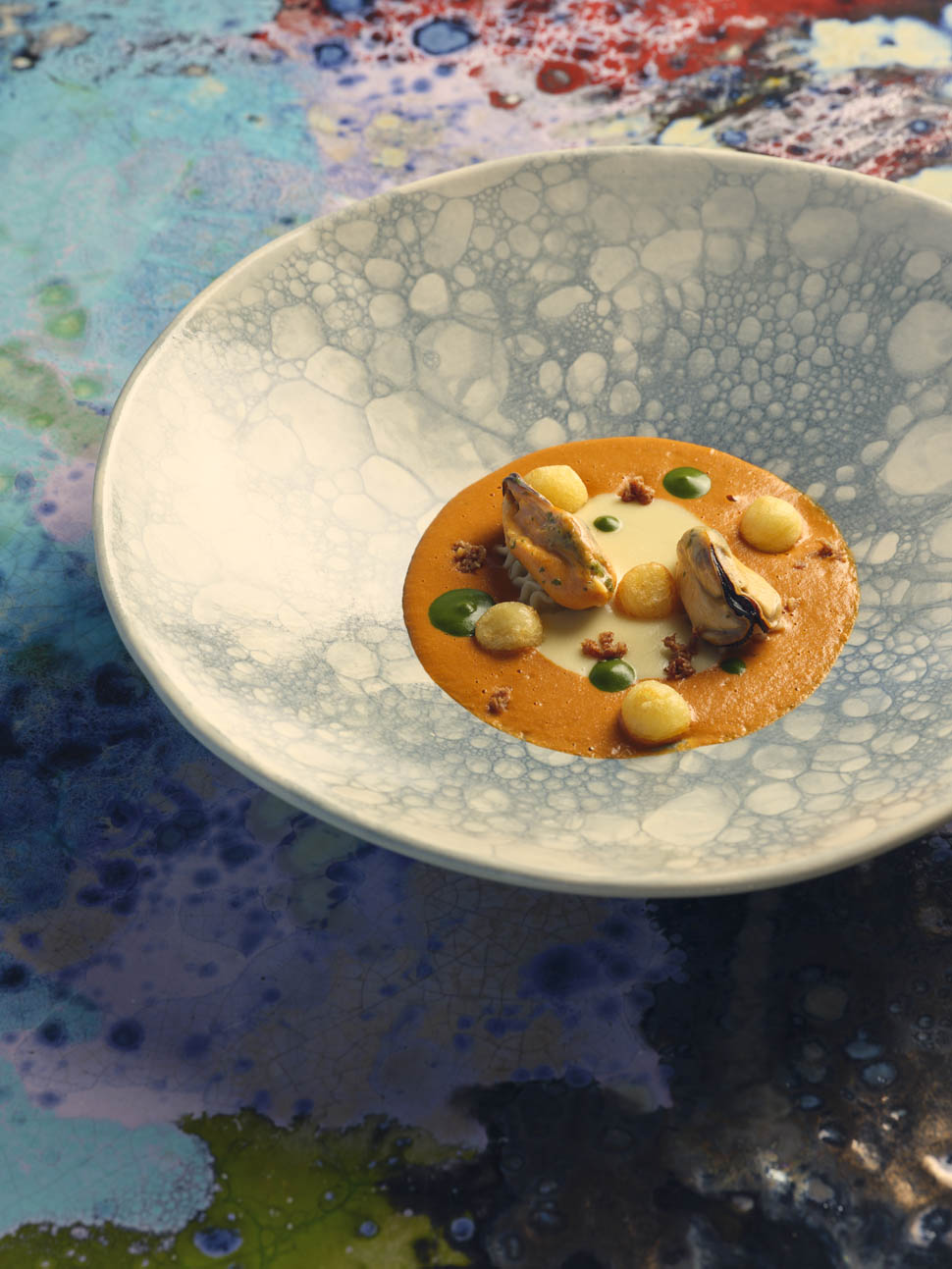
The delicious L’albero di Giuda takes its inspiration from the traditions of Ciociaria: the beans used in the typical Atina soup are replaced with cercis (Judas tree) flowers, used historically in times of famine. Served with a chickpea porridge, the base is sulfur beans, Alliaria leaves, preserved chanterelles or porcini, helichrysum oil and cercis flowers; lending savoriness is a Cercis miso with creamed cod and stockfish and black chickpea cryo-extraction. Still plenty of gluttony to serve the supplì in the cylinder, with which the chef celebrates Capitoline street food: supplì on the phone with Sant'Andrea rice, cooked in a pork-tomato sauce; double crispy breadcrumbs and a stringy heart of Apulian fior di latte complete the work.
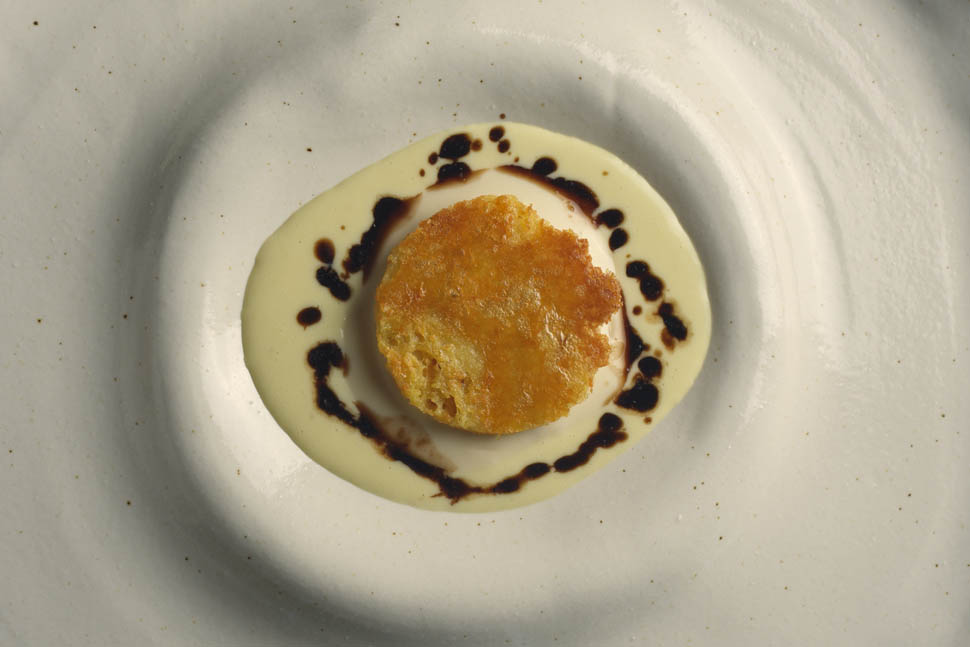
We're still in the capital with Ferragosto romano, a gourmet version (but not too much, because the veracity is not lost) of chicken and peppers double-duty. We start with exquisite chicken breast and oatmeal noodles, whipped with giblets and chicken leg sauce and served with fried cruschi peppers. This is followed by a cannoli of roasted chicken skin, stuffed with Roman-style peppers, with fried ridges and wattles. At the base, a powerful, savory, wonderful chicken sauce.
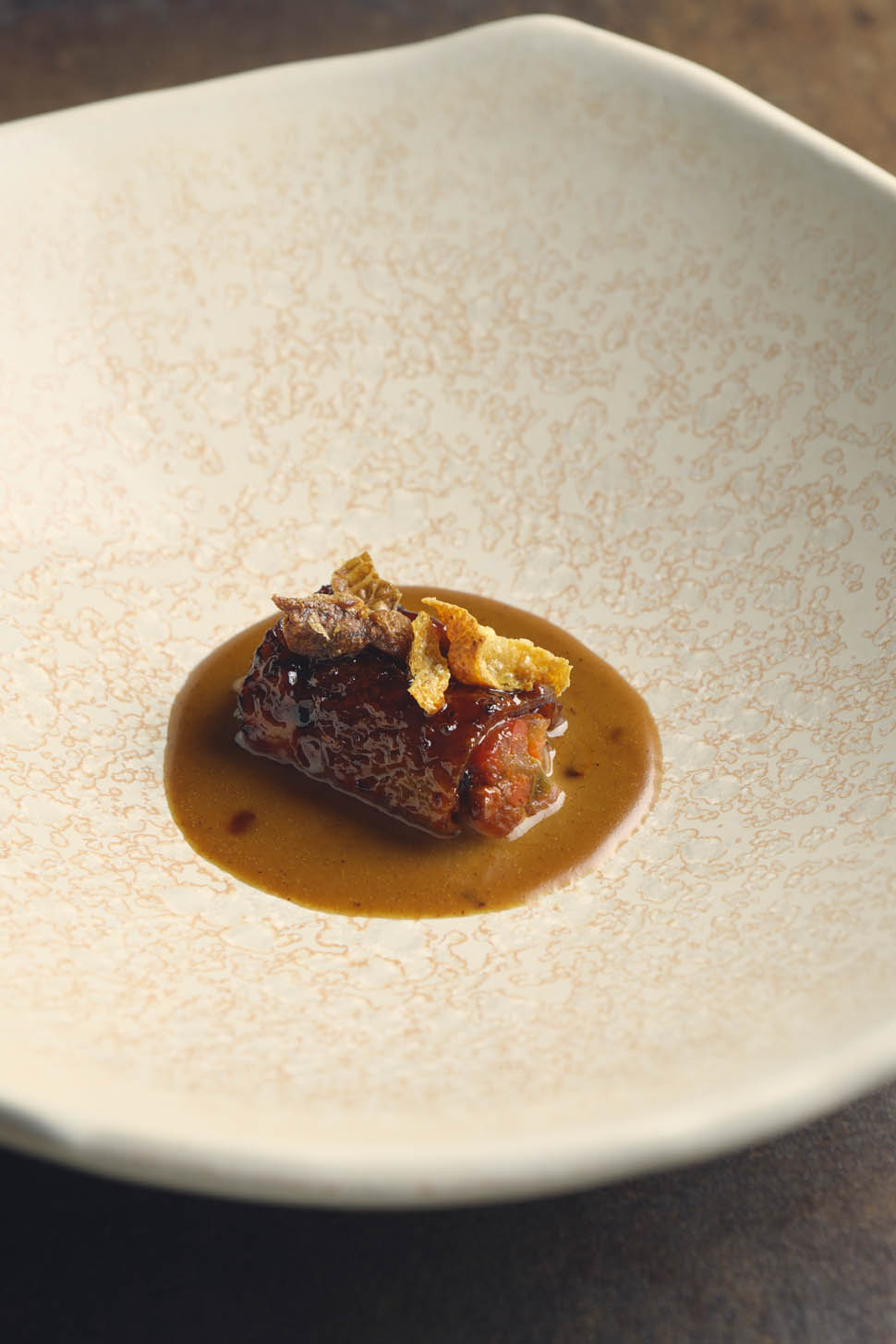
The sweet part comes from suppergiù, a totally sui generis interpretation of tiramisu, with the savoiardo made from chufa flour (the sweet knapweed), which is gluten-free. A chicory coffee enriched with terebinth seeds is used for the sauce. There is no cocoa, in its place roasted carobs. The cream is based on sour cream from milk from small local producers, processed with eggs and vanilla. Finally, we are fruit is another example of Impero's idea of seasonality: seasonal fruit is picked at the best time and preserved, then served whole with its own compote.
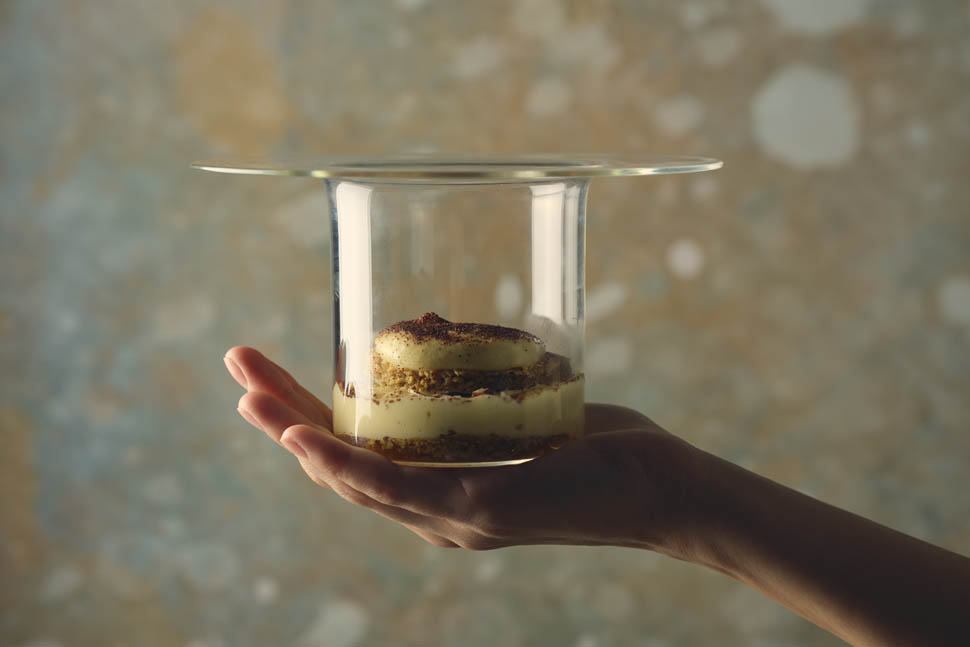
The menus can of course be paired with an articulated wine and non-wine itinerary, starting from a cellar full of more than six hundred labels, or by choosing an ad hoc pairing or even just based on Champagne Nicolas Feuillatte with important reserves. Finally, there is no shortage of a fine selection of signature cocktails made by bartender Mirco Lalli.
Contact
Elementi Restaurant
Via del Colle, 38, 06089 Brufa PG
Phone: 349 753 8102
